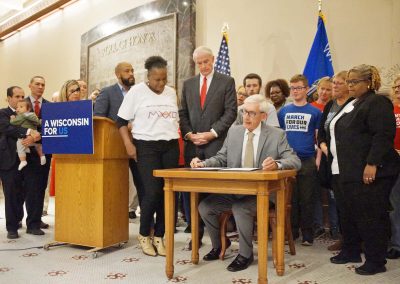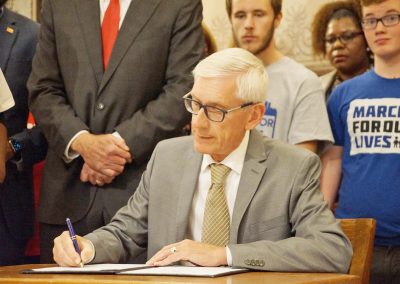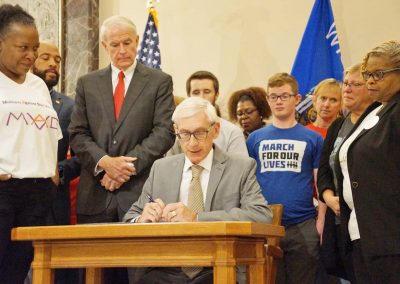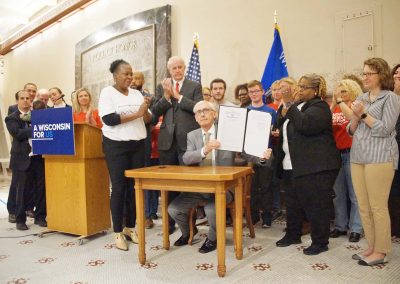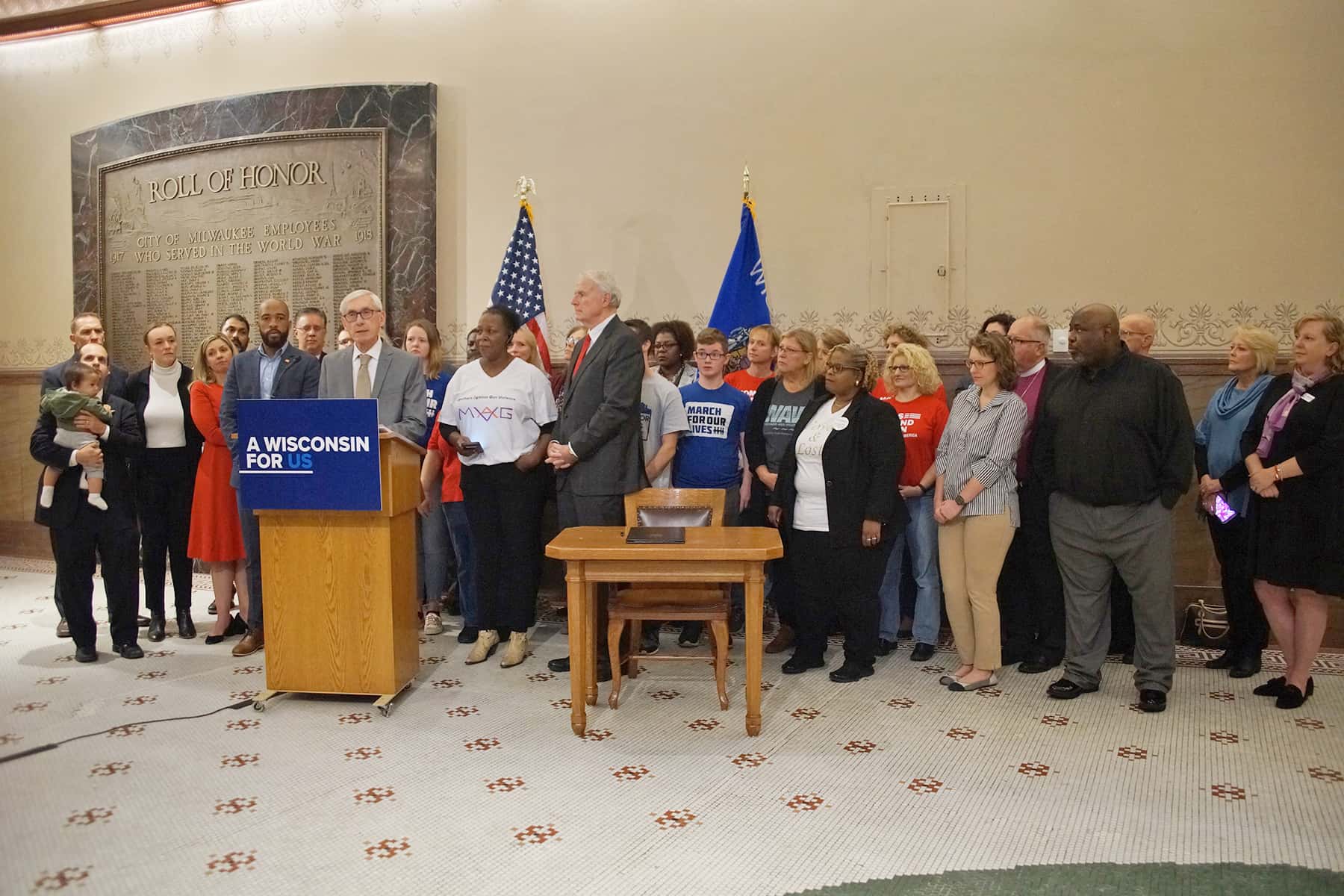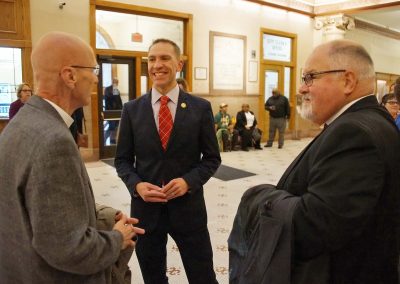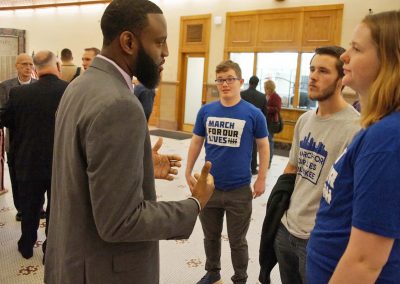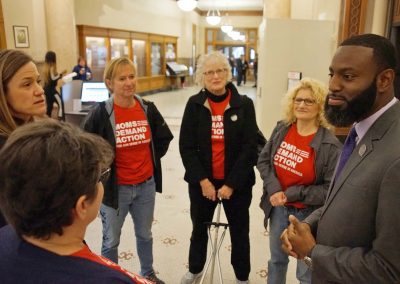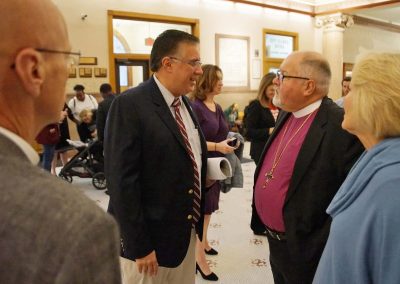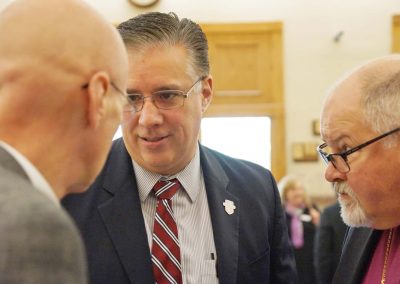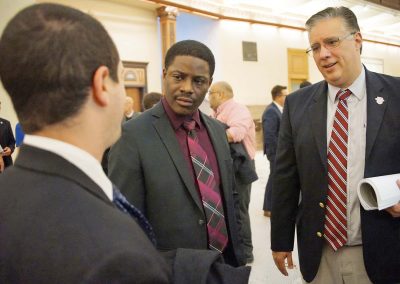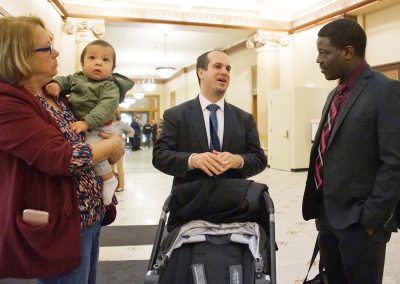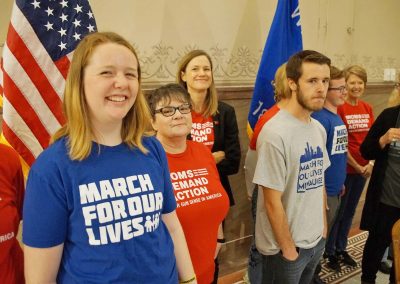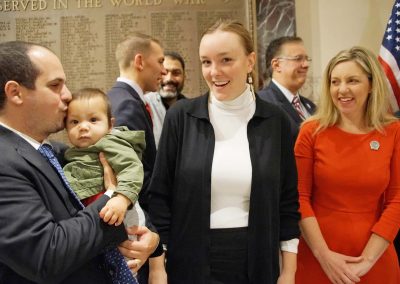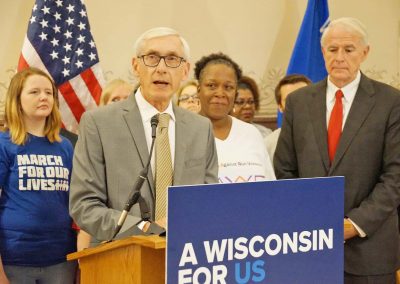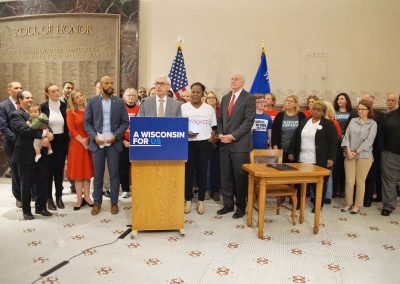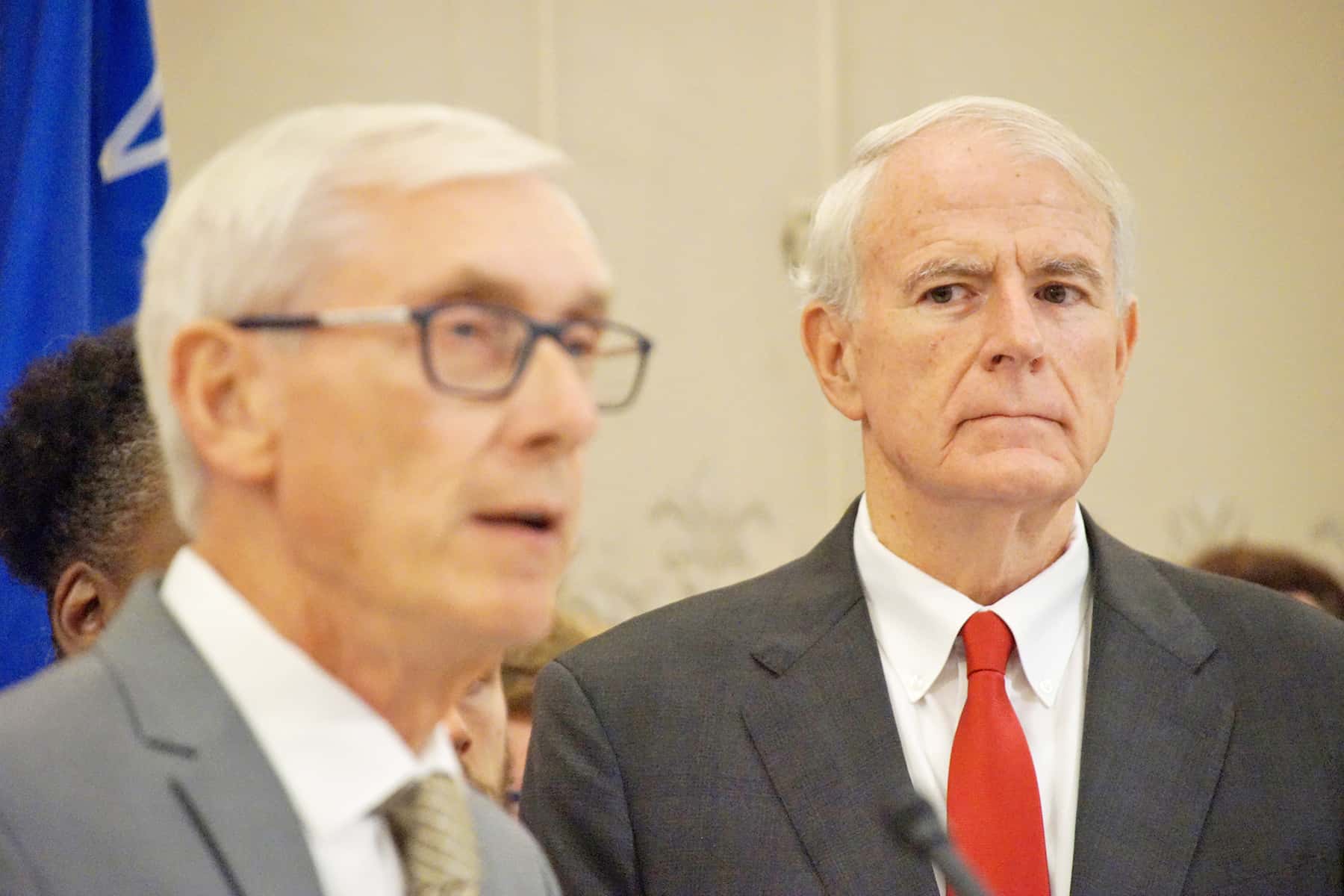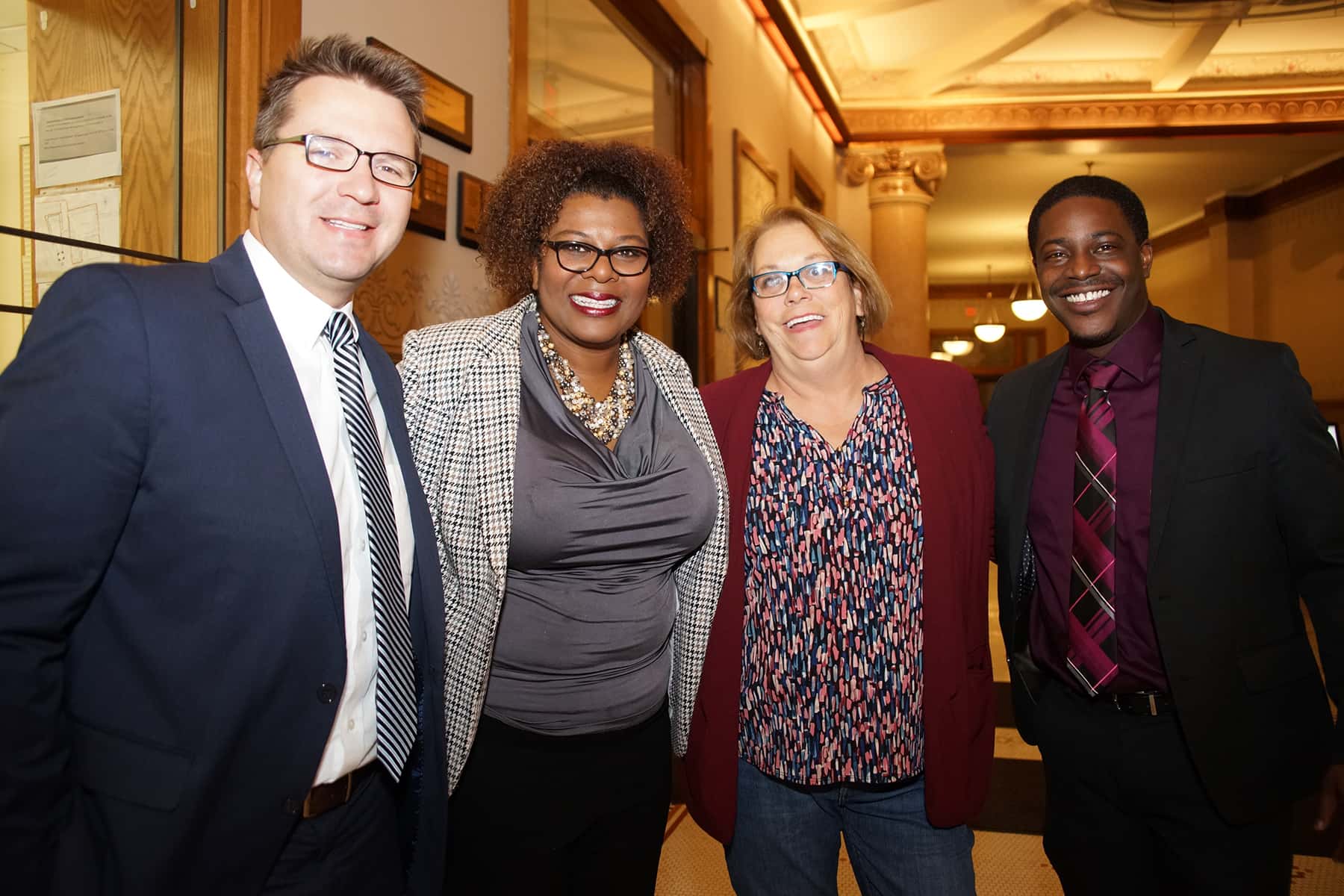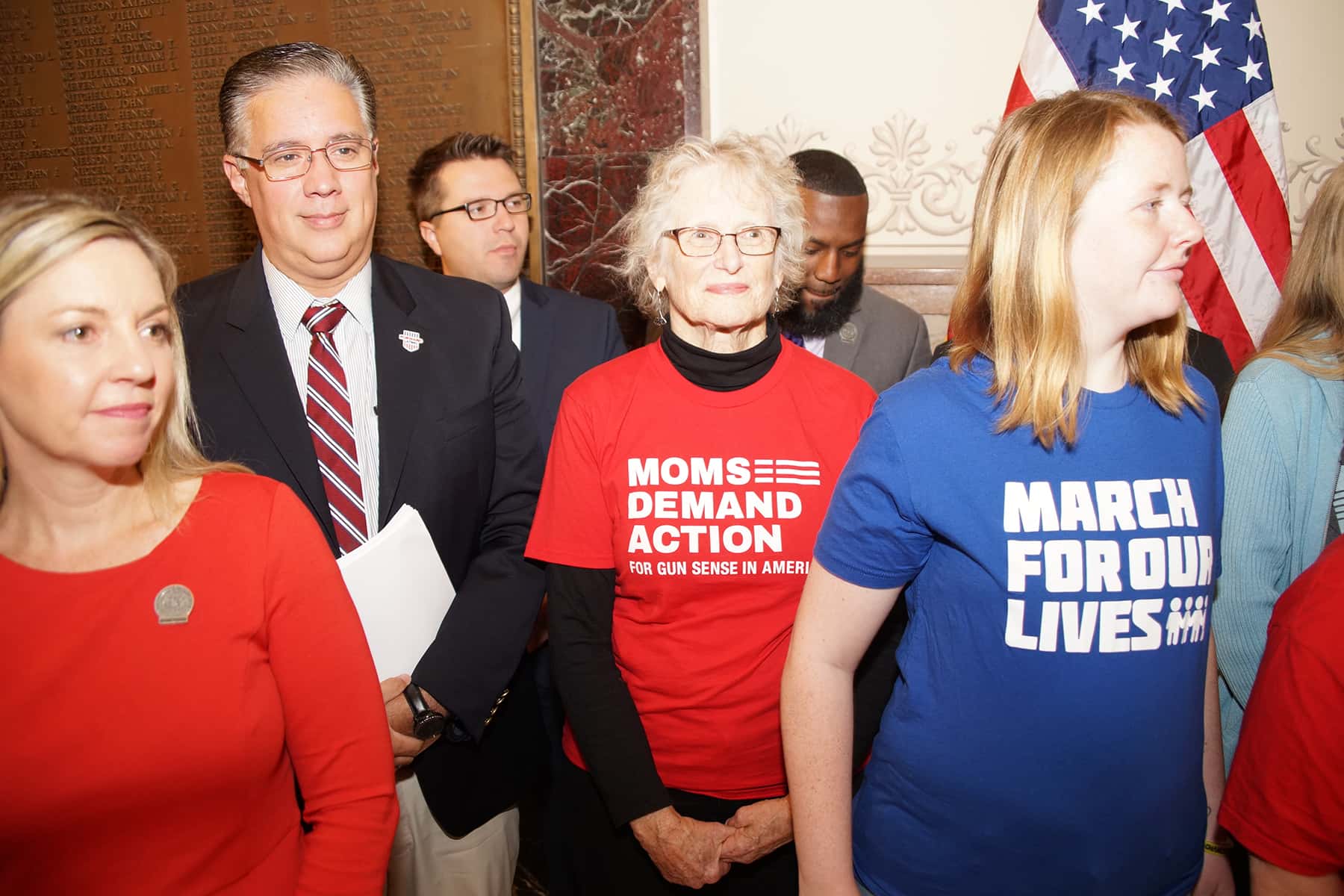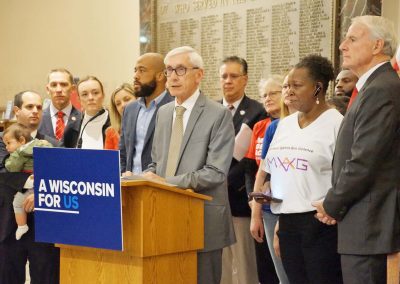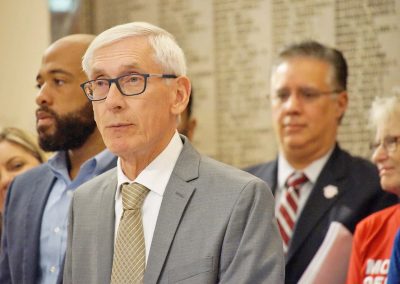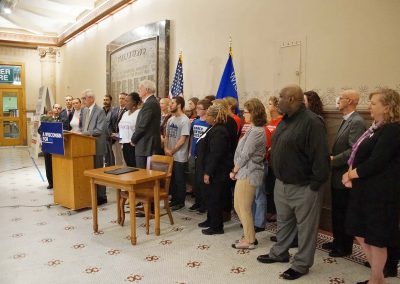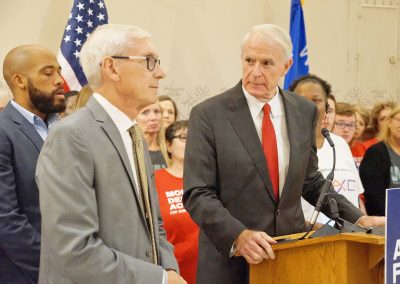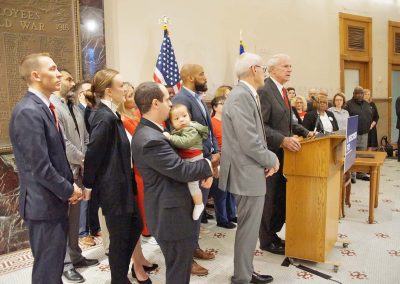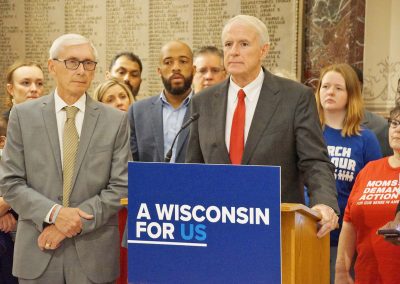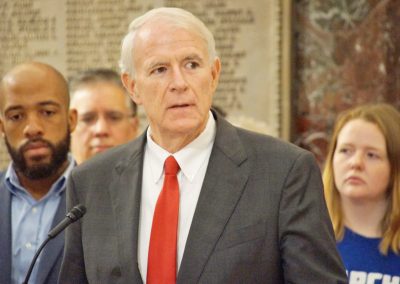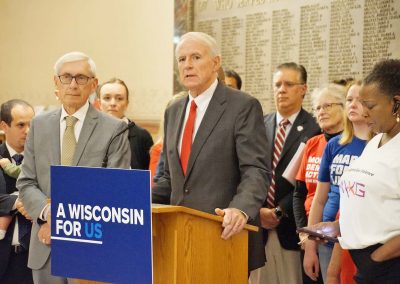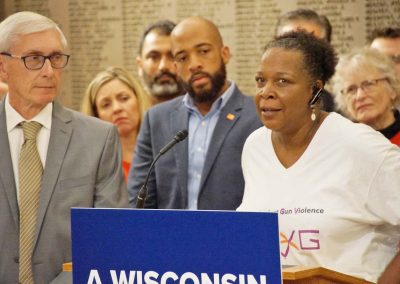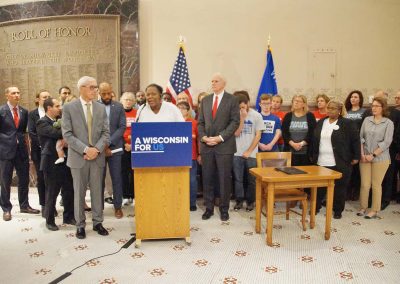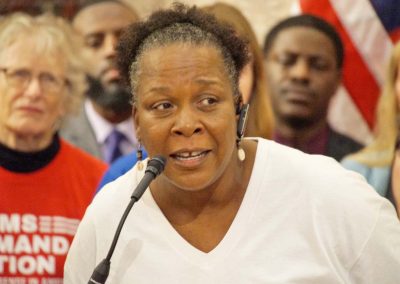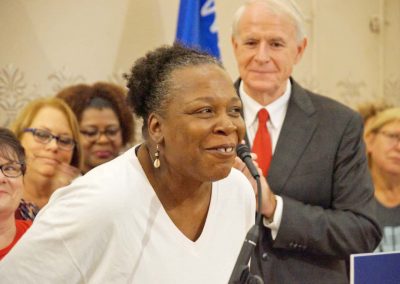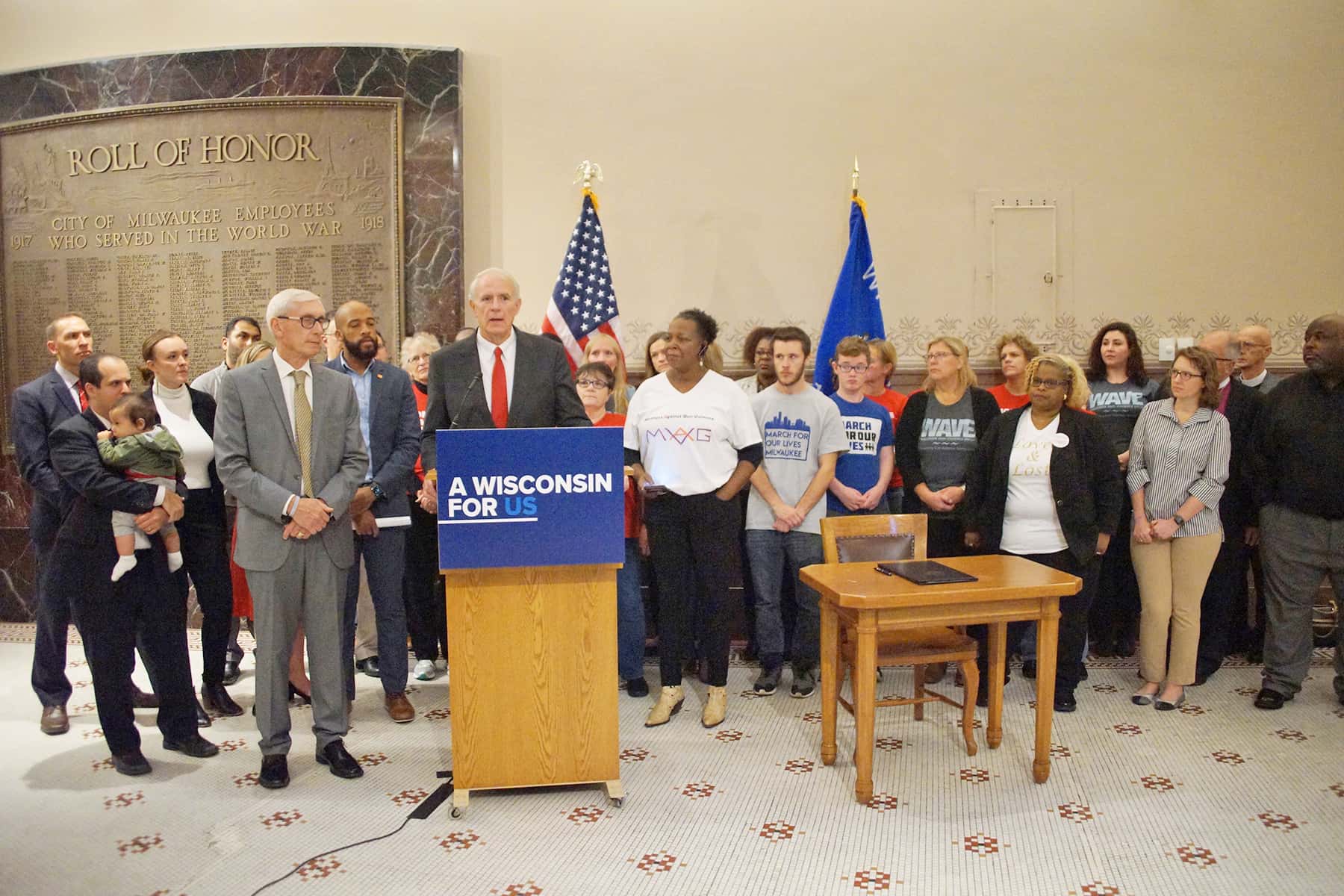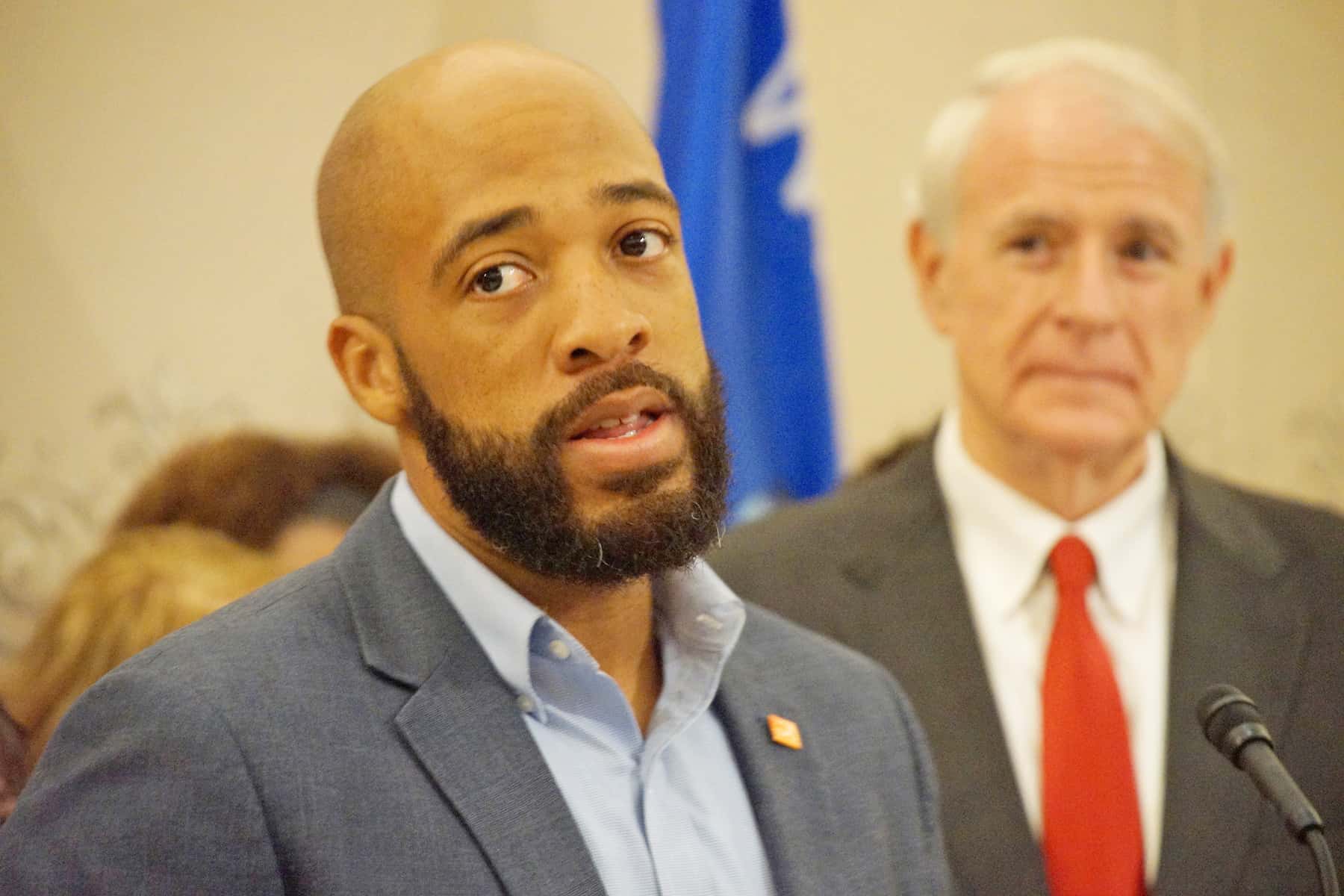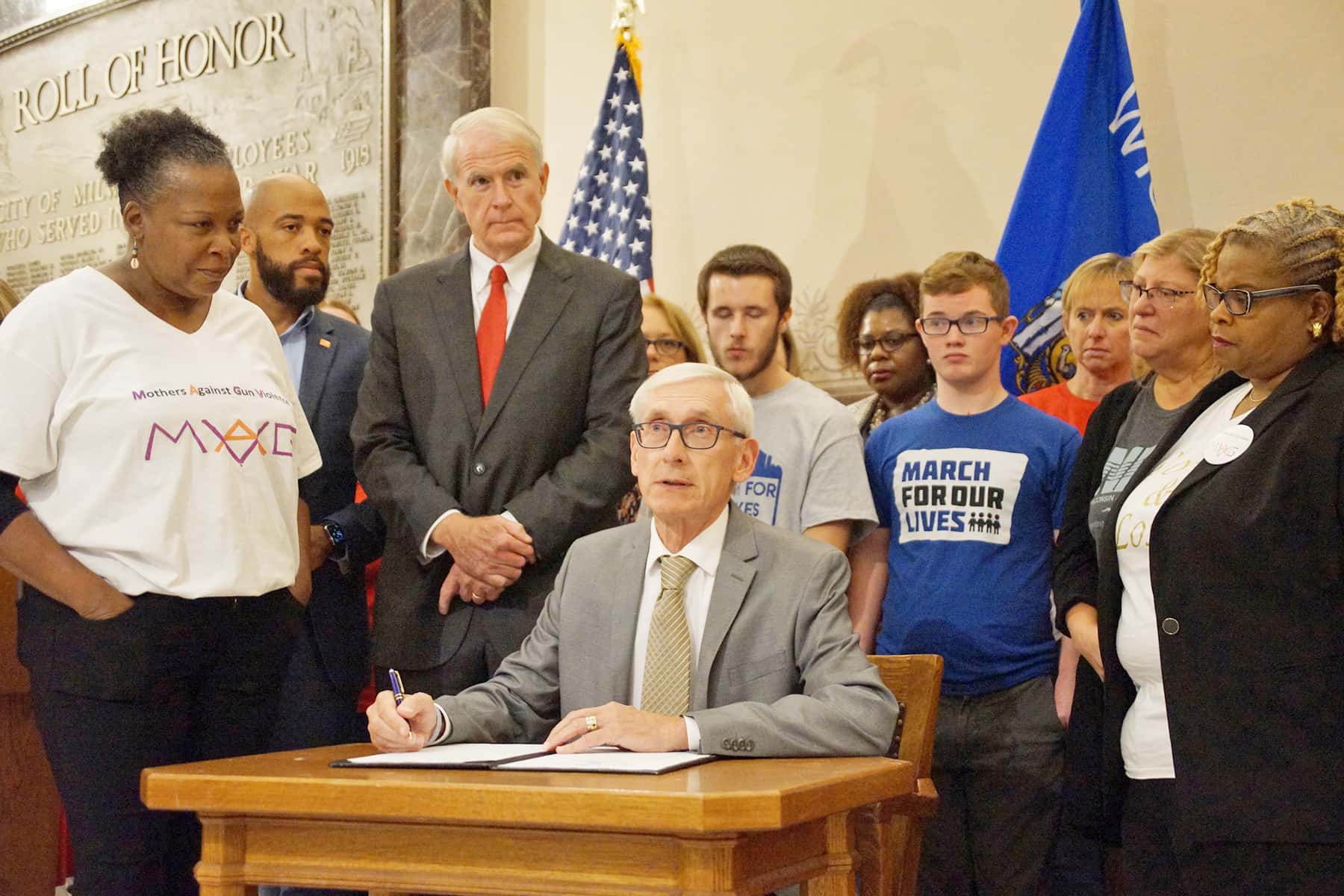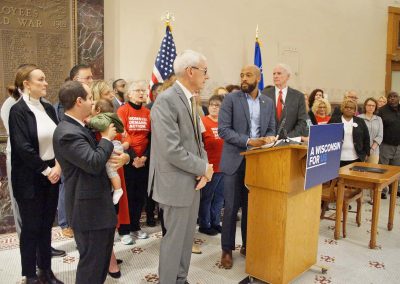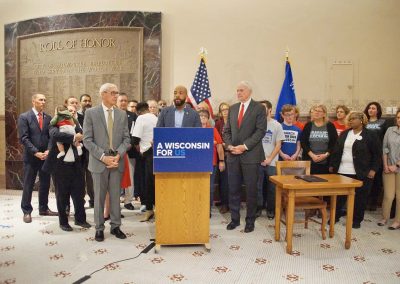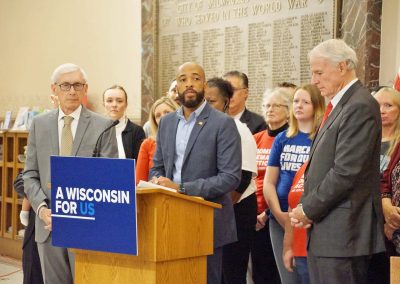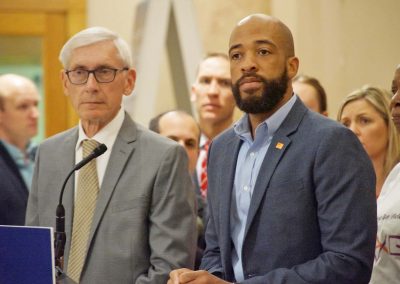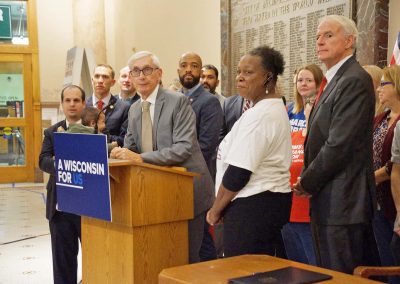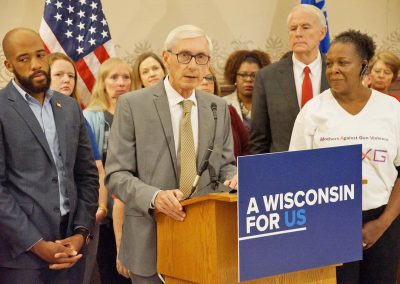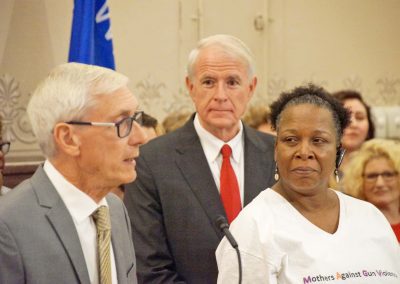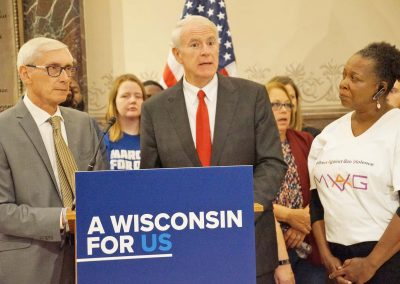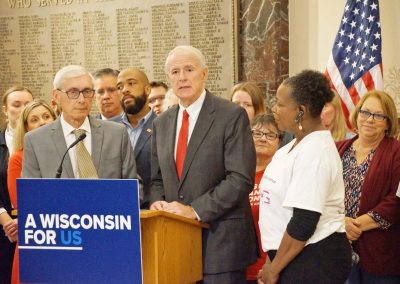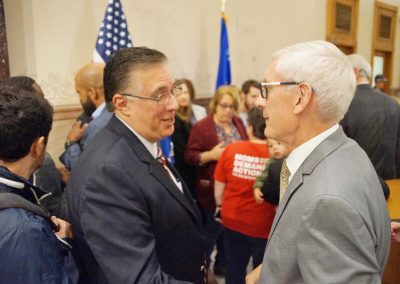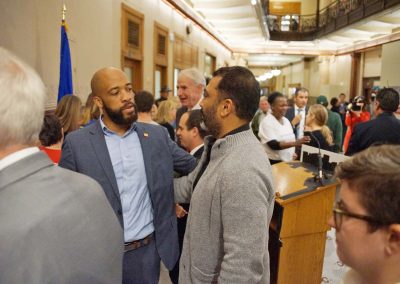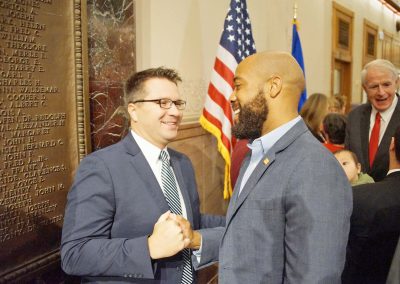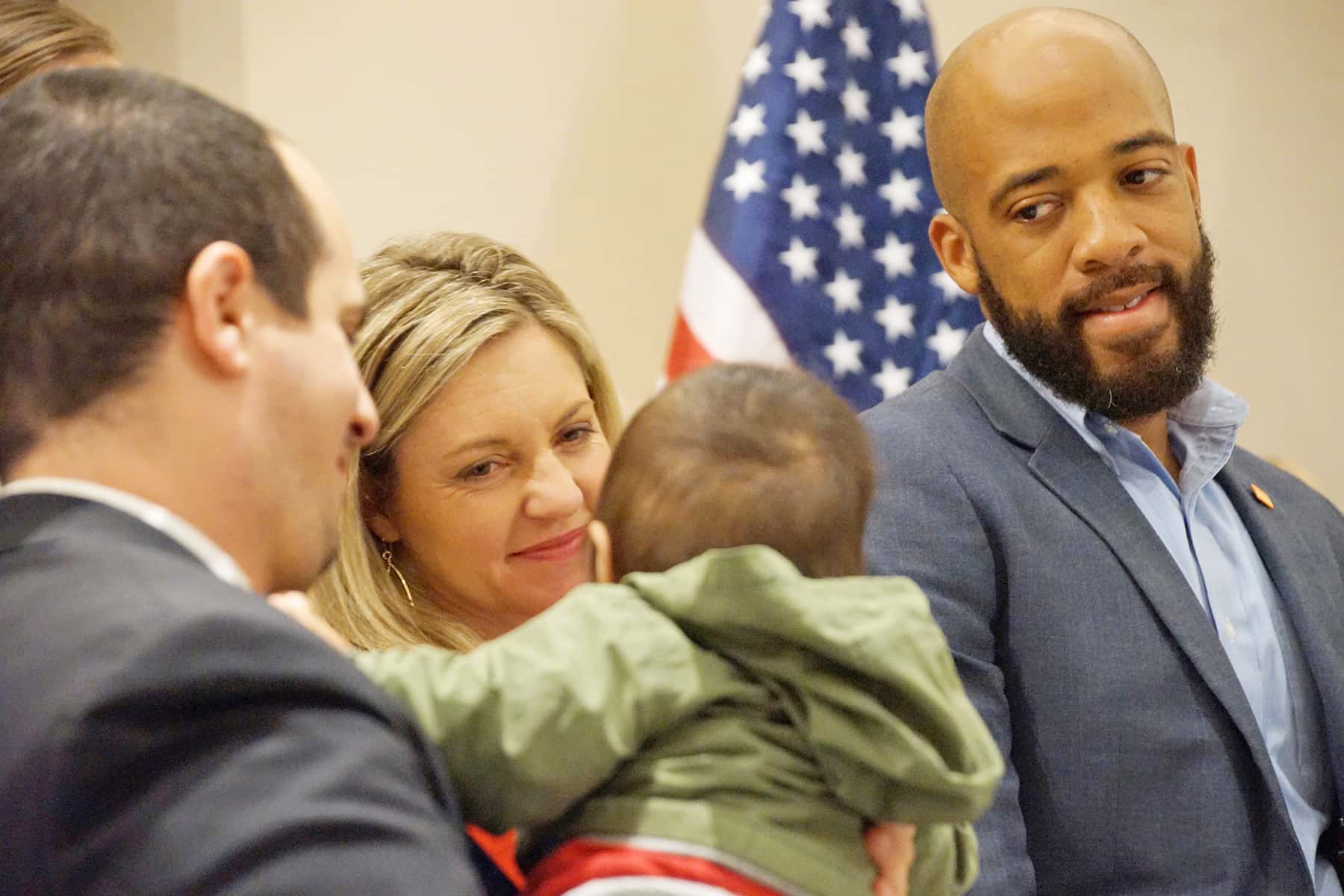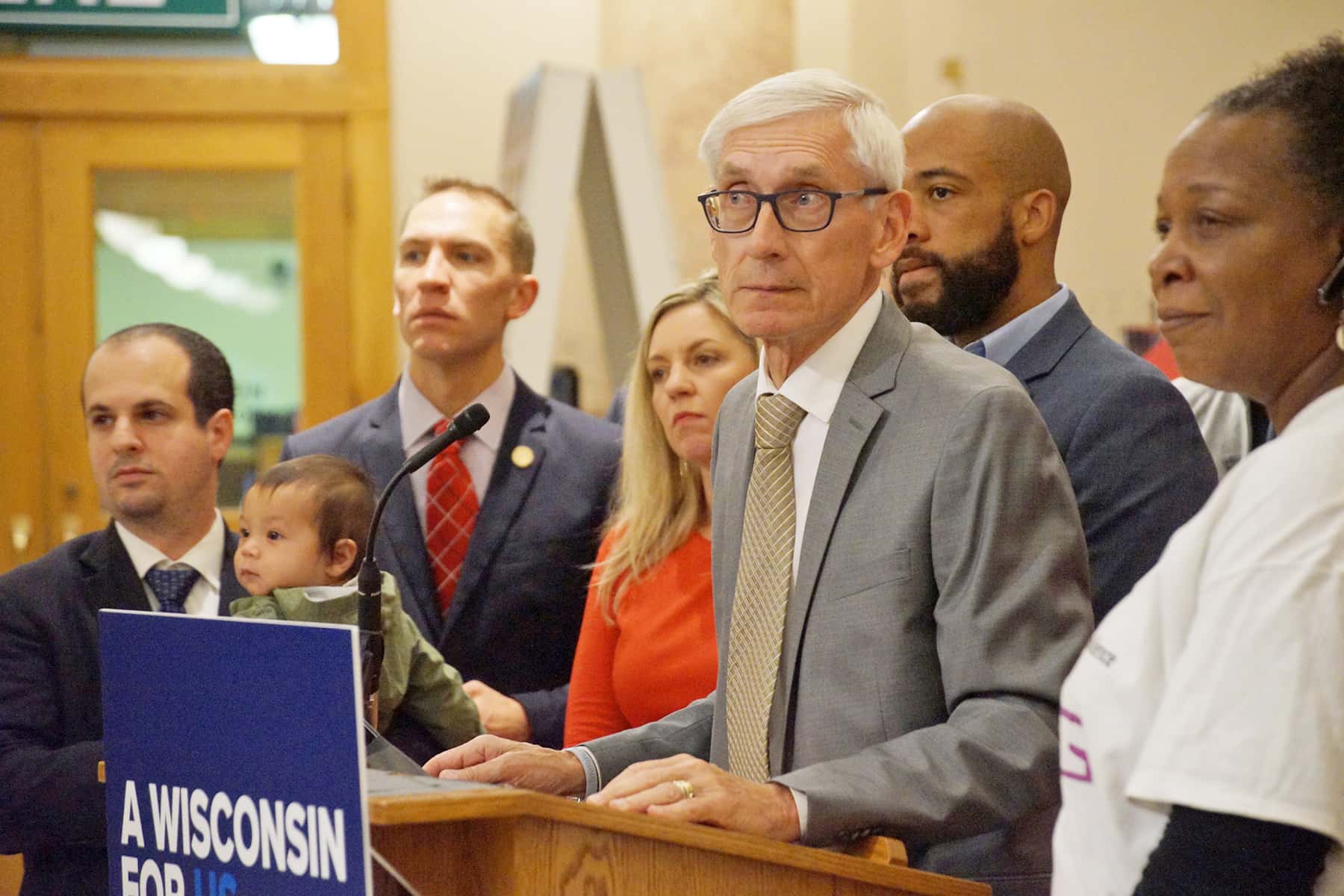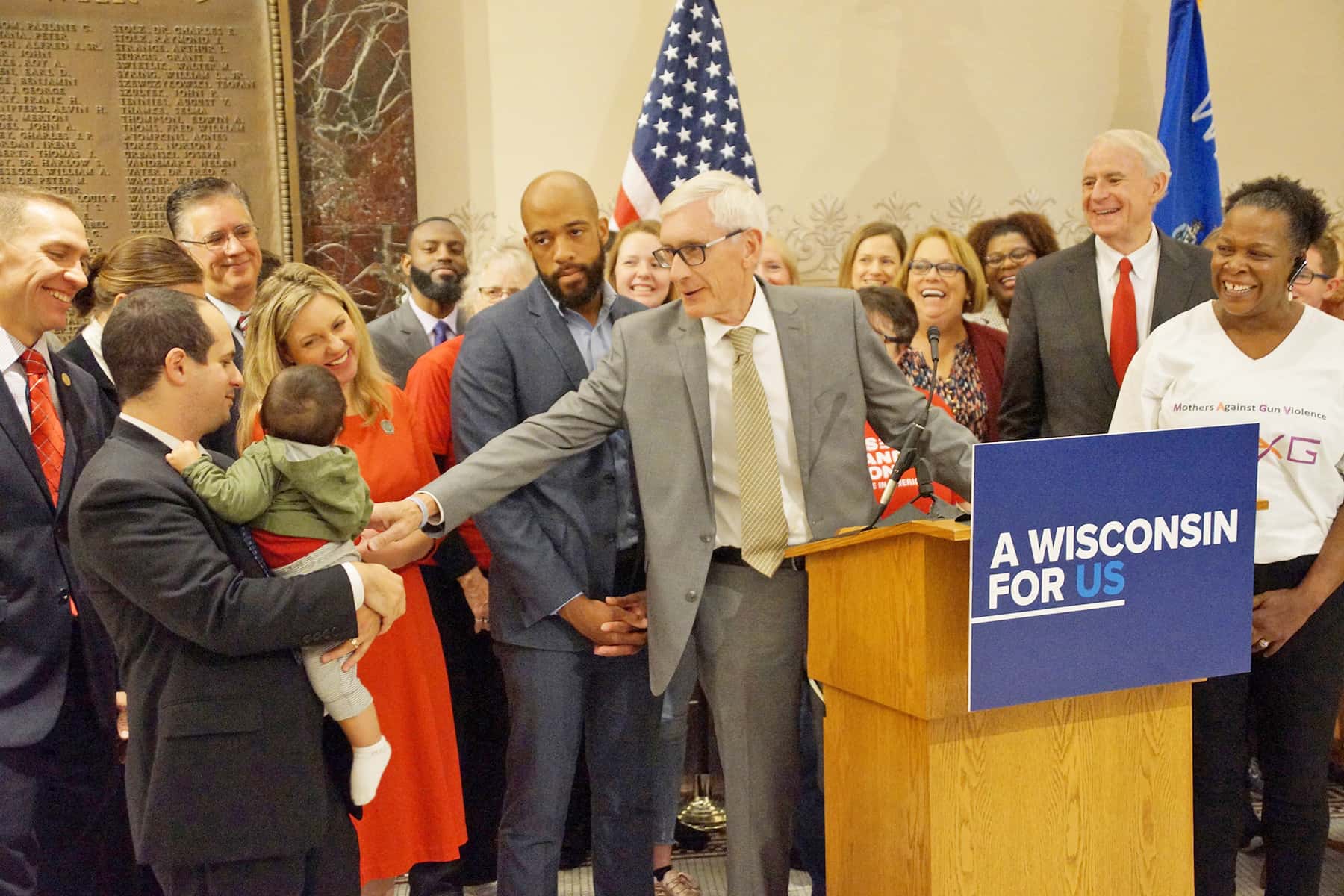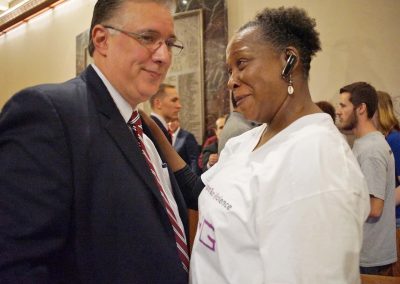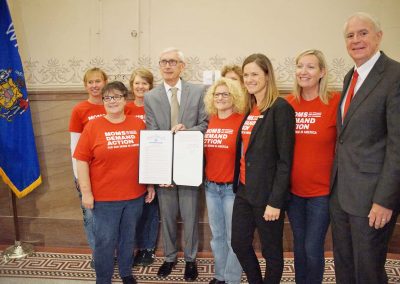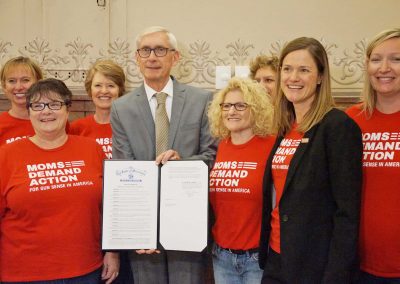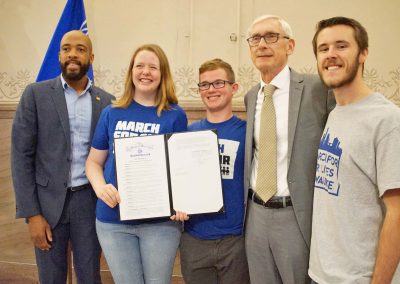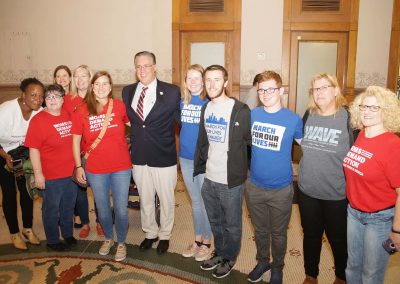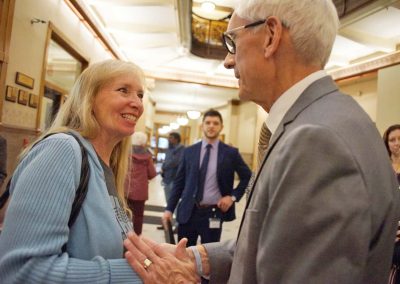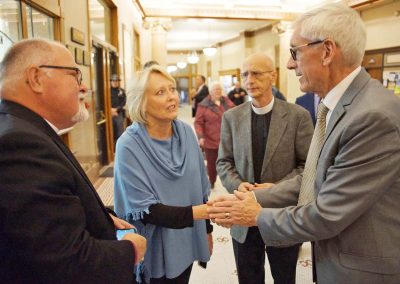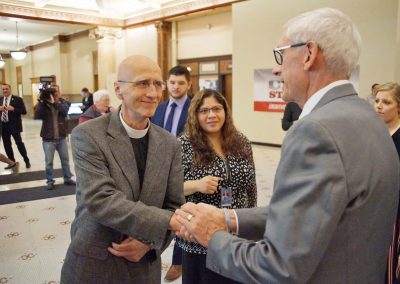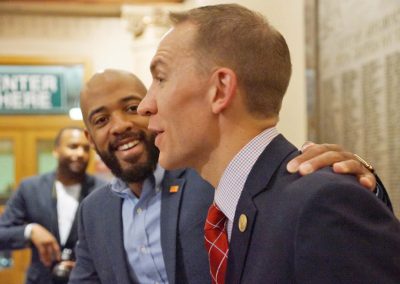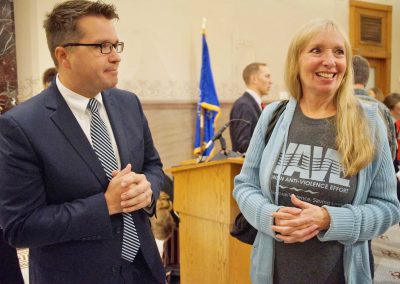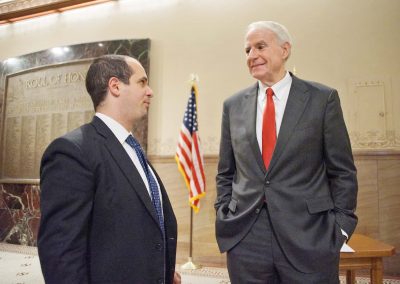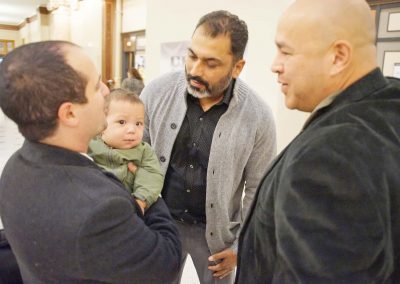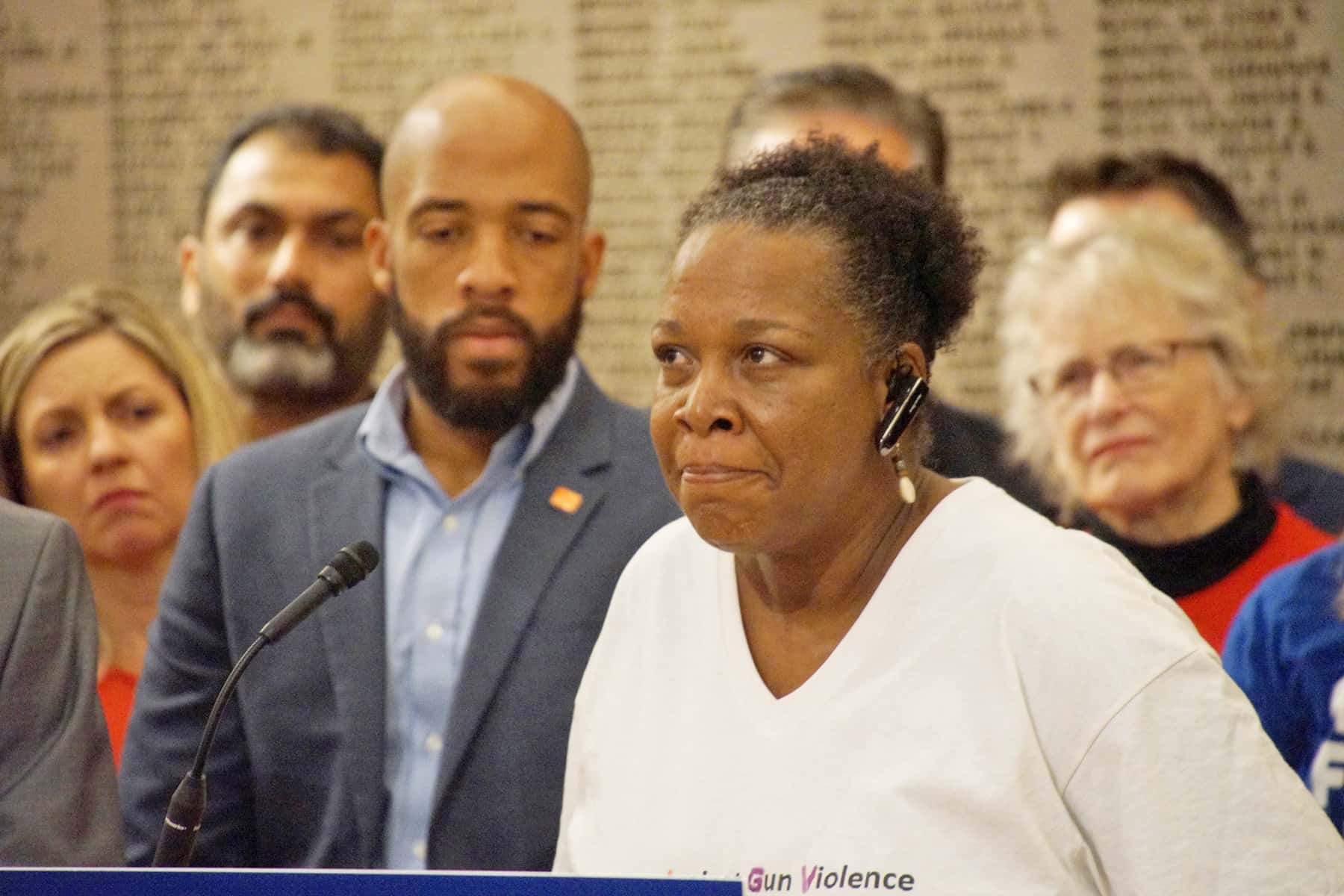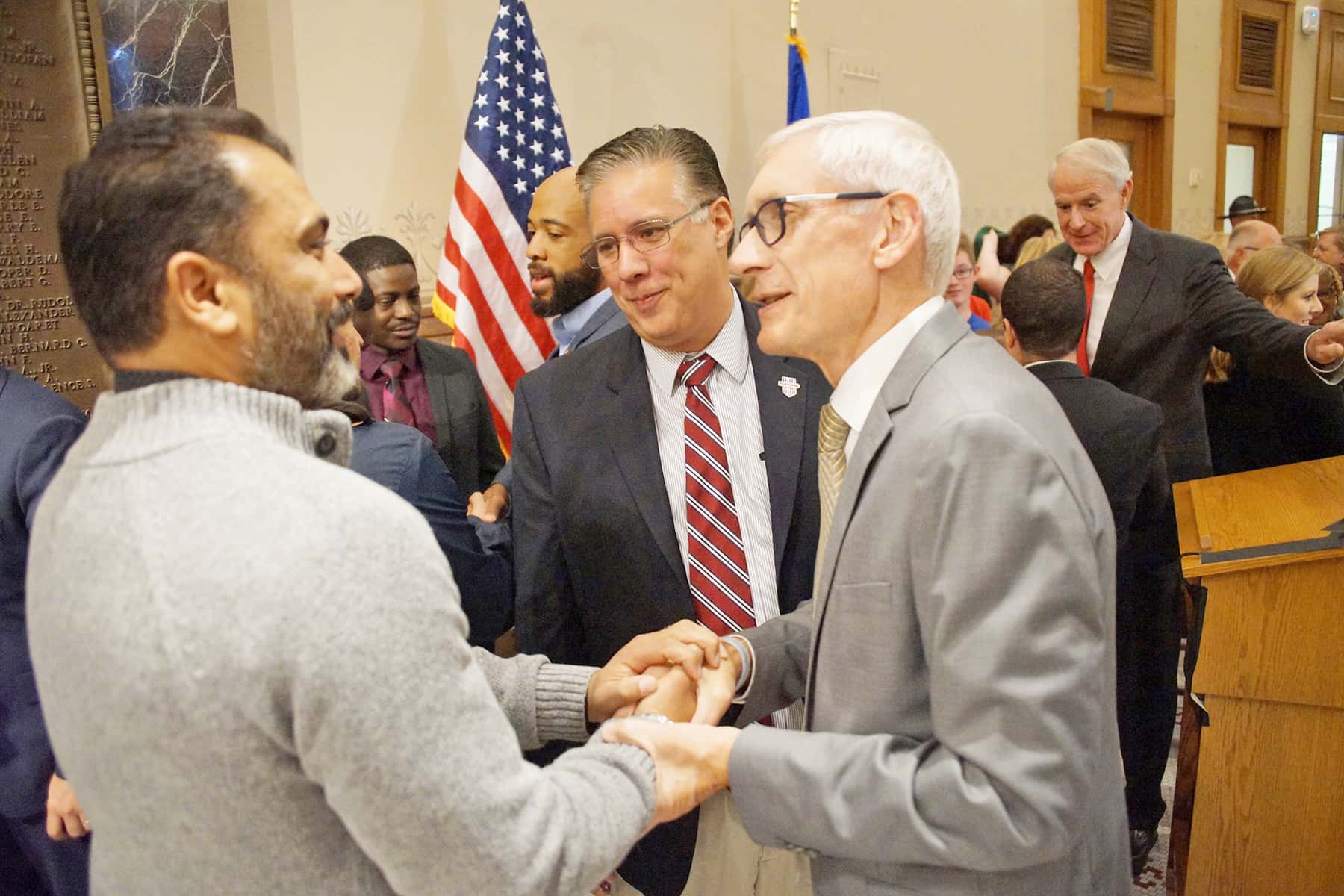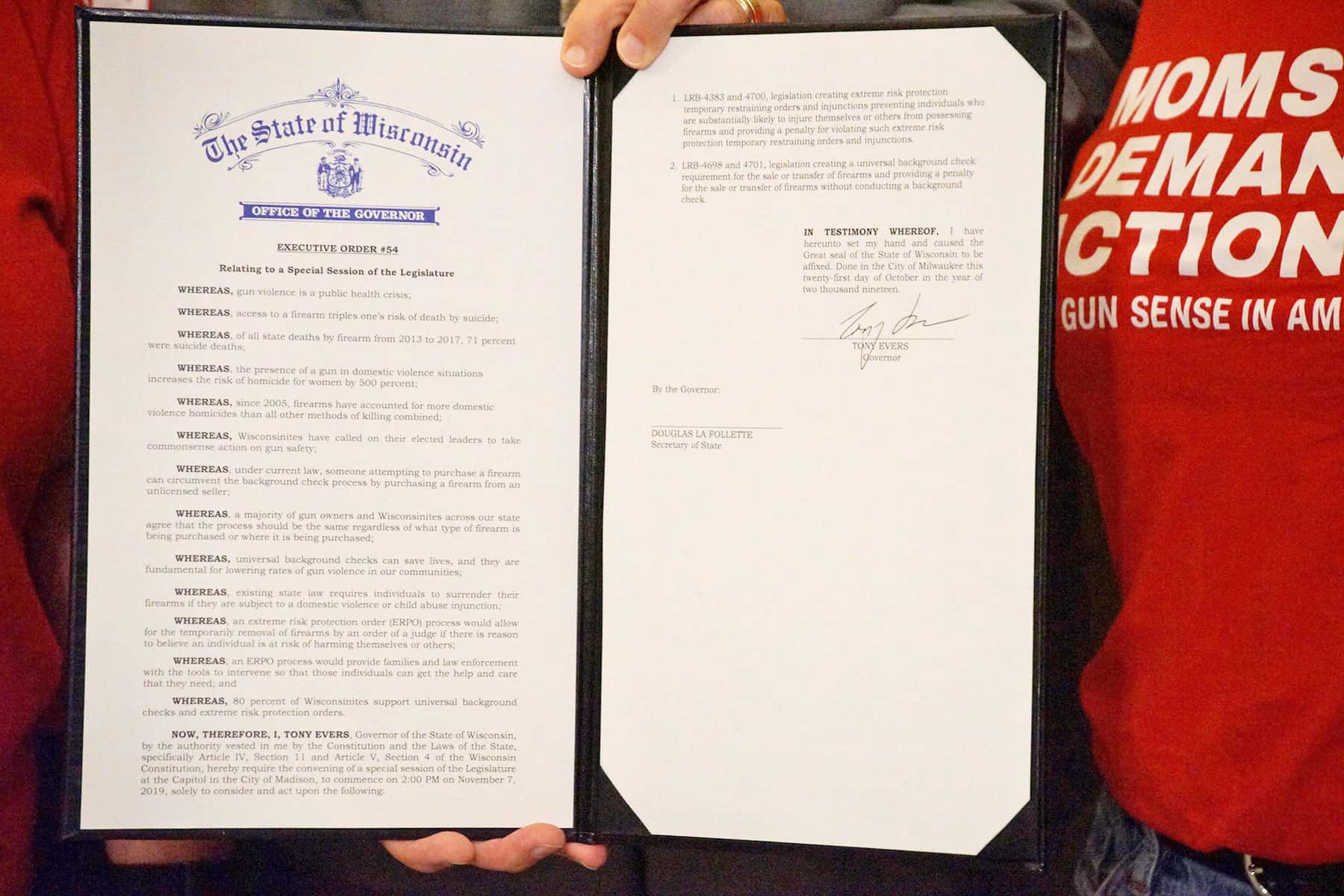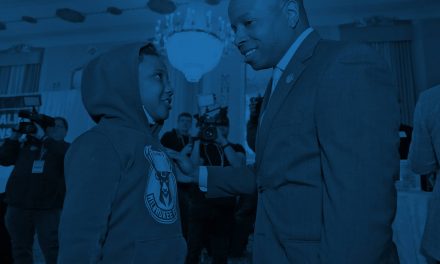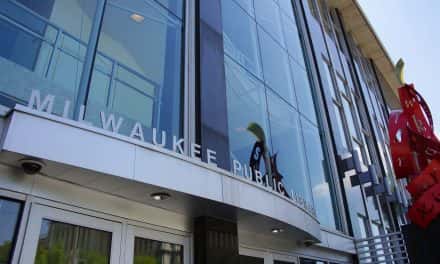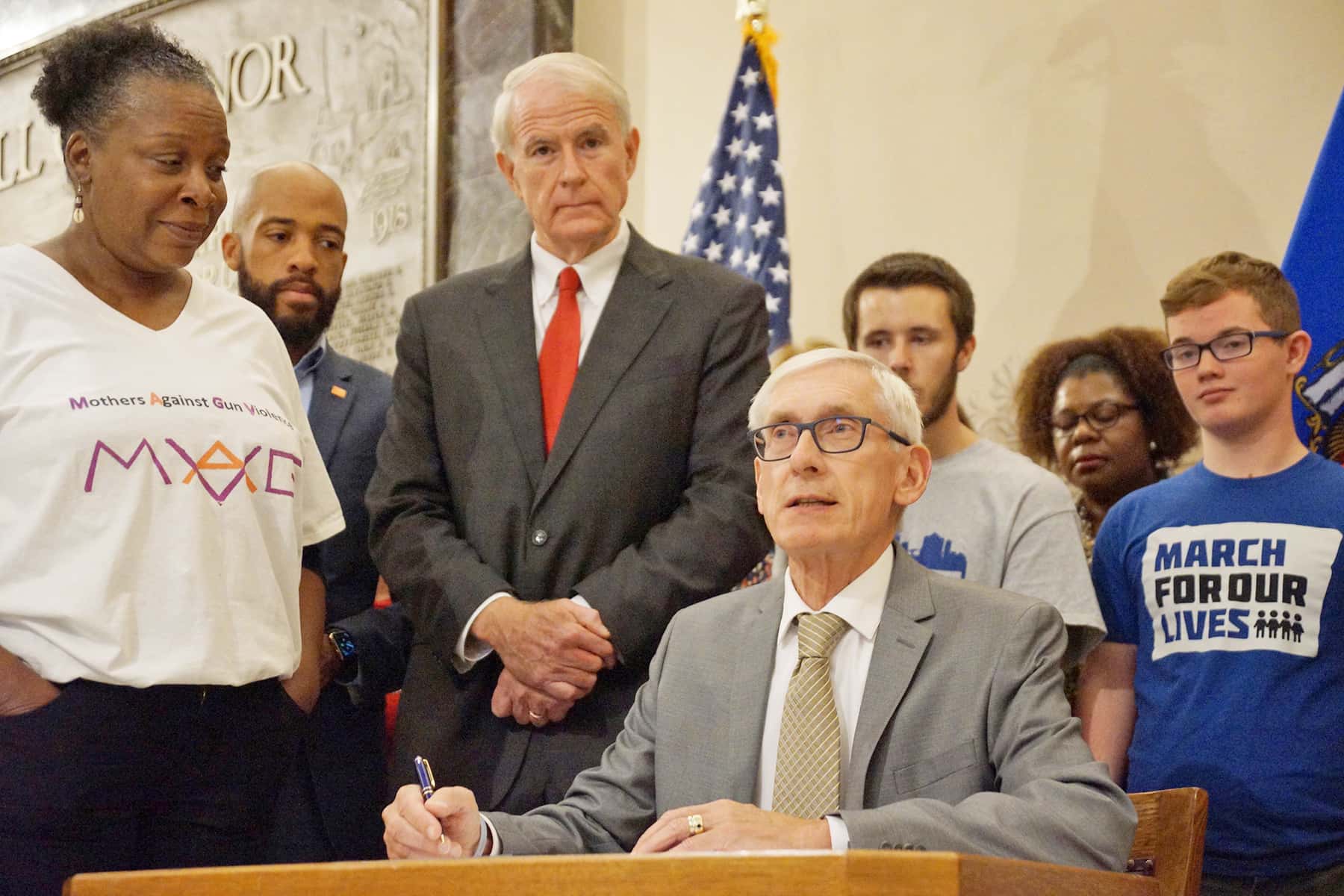
Governor Tony Evers signed Executive Order #54 on October 21 in Milwaukee calling the Legislature to meet in a special session on November 7 to address gun violence in the state of Wisconsin.
The move will force Republicans to debate or vote on the bills, but it will force them to at least convene the special session. Republican leaders have been unwilling to debate the issue, telling those who support the measures to “go to hell.” The move gives Governor Evers a chance to put a spotlight on the gun control measures that a Marquette University Law School poll last month had over 80% support.
“Since taking office in January, I have called on the Legislature to take action and pass commonsense gun safety reform time and time again, giving Republican leadership the opportunity to hear the people of our state and to do the right thing,” Gov. Evers said. “Today I am delivering on my promise to call a special session to address gun violence across our state and I’m calling on Republicans to work with Democrats to get this done.”
At a news conference in the rotunda of the historic Milwaukee City Hall, Governor Evers was joined by Mayor Tom Barrett, Lt. Governor Mandela Barnes, State Senators Chris Larson and LaTonya Johnson, State Representatives Evan Goyke, Jonathan Brostoff, David Crowley, David Bowen, Robyn Vining, Lisa Neubauer, Christine Sinicki and LaKeshia Myers, and surrounded by anti-gun violence advocates that include the 80% Coalition, Forward Latino, March for Our Lives Milwaukee, Wisconsin Anti Violence Effort (WAVE), and Moms Demand Action.
“How many times can you go against 80% of the people of the state of Wisconsin and essentially tell them to go to hell and expect to be re-elected?” Evers said of Republicans. “It doesn’t make sense to me.”
Assembly Speaker Robin Vos and Senate Majority Leader Scott Fitzgerald, who control the Legislature’s agenda and have voiced opposition to the bills in the past. Evers wants the Legislature to take up a bill that would require universal background checks for most handgun purchases. He’s also calling on them to vote on a “red flag” bill that would give judges the power to take weapons away from people deemed to be a threat to themselves or others.
“We aren’t talking about theory here. We are talking about actions that the Legislature can take that will literally save lives in the state of Wisconsin,” said Mayor Barrett. “We are fortunate to have a governor who is clear-eyed and who is courageous enough to take on the opponents of this type of legislation.”
The special session, which is scheduled to convene November 7, is the first Evers has called as governor. Special sessions have become increasingly common in Wisconsin, with 74 called since 1961. Former Republican Governor Scott Walker called nine of them over his eight years in office, most recently in March of 2018 to take up school safety bills.
“The Governor is rightly forcing legislators to convene in Madison to deliberate on two bills that have so far been ignored and not scheduled for hearings by GOP leaders,” said Milwaukee Alderman Cavalier Johnson, in a statement thanking the Governor for calling the special session. “One measure would establish a new red flag law that would allow judges to take guns away from people who are deemed to be a danger, and the other would require a background check on almost every sale of a firearm.”
Unlike Governor Evers, Walker had a Legislature controlled by his own party, which made it easier to get his proposals enacted into law. Walker primarily used special sessions to highlight policy proposals and propose his own solutions. Fifty laws were enacted through special sessions called by Walker.
The dynamic is different for Governor Evers because he has to contend with a Republican-controlled Legislature that has shown little appetite for enacting his agenda. Still, by calling the special session, Evers can use his bully pulpit as governor to draw more attention to the bills. Governor Evers promised to call multiple special sessions on gun control if Republicans don’t act.
“We need an up or down vote,” added Governor Evers. “We have to get this done, folks.”
Evers had threatened to call the special session for months, as Republican legislative leaders showed no interest in taking up the bills during their regular session that runs through next spring. He and other Democrats say the gun restrictions are needed in light of the many mass shootings in the United States.
Under the red flag bill, a judge could seize people’s firearms for up to a year if they pose a threat to themselves or others. Seventeen states and the District of Columbia have passed similar red flag laws. The universal background check bill would allow the Wisconsin Department of Justice to conduct the checks on purchases made at gun shows, online, auctions and other sales that aren’t covered by the federal law requiring background checks on guns sold through federally licensed dealers.
Like Republicans across the country, the Wisconsin GOP has long insisted that restricting access to guns wouldn’t stop mass shootings and could infringe on Second Amendment rights. They maintain that the answer is focusing on mental health. A Marquette University Law School poll in September showed that 80% of respondents support a universal background check proposal and 81% of people who said they have a gun in their home back a red flag law while 86% of people who said they didn’t have a gun in their house back it.
“It’s time for us to realize the devastation of what firearms in the wrong hands are doing to our communities,” said Lt. Governor Barnes. “But more than that, it’s time for us all to act.”
- Pardeep Kaleka: When a diverse community gathers in fellowship on the spiritual toll of gun violence
- Sherrill Knezel: The synergy of small actions that bring people together for a greater good
- “On the Block” discussions focus on economic development in underserved communities
- Cory Booker discusses our “humanity on the sidewalk” at Milwaukee roundtable on gun violence
- Local voices join interactive mural display to share stories on overcoming gun violence
- Sandra Parks shared “Our Truth” as a child victim on the state of chaos from gun violence
- The day Milwaukee turned orange to help end gun violence
- Milwaukee students walkout of class in call to end gun violence on Columbine anniversary
- Golda Meir students join national school walkout against gun violence
- Gun safety advocates in Milwaukee demand Congress end paralysis of courage and enact red flag laws
Lee Matz

